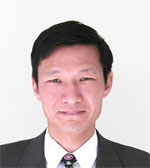Introduction
Biographical Information
Mao Wen is currently a Profesor of Materials Science & Engineering at Shanghai Jiao Tong University. After receiving his PhD in Materials Science from Shanghai Jiao Tong University in 1990, he went to Guangzhou and served as associate professor and the head of High Temperature Technology Research Group in the Institute of Materials Science at South China University of Technology till 2000. He then moved to Japan, where he was a NEDO (New Energy and Industrial Technology Development Organization, Japan) Industrial Researcher and a Senior Scientific Researcher in AIST (National Institute of Advanced Industrial Science and Technology). He returned to China and jointed the faculty at Shanghai Jiao Tong University in 2011. His primary research interests are defects and mechanical properties of metallic materials via atomistic simulations and TEM, where he has developed his own programs for the simulation and visualization of defects in simulation models. His current research topics include the mechanism of hydrogen embrittlement of materials and dislocations in metals and alloys.
Research Interests
Crystalline defects and mechanical properties of metals and alloys, atomistic simulations and TEM analysis.
Selected Publications
1. C. L. Zhou, Z. Y. Li, Y. Z. Zhao, Z. L. Hua, K. S. Ou, L. Zhang, M. Wen, P. Xu, “Design fatigue life evaluation of high-pressure hydrogen storage vessels based on fracture mechanics”, Proc IMechE Part E: J Process Mechanical Engineering, 2014.6, DOI: 10.1177/0954408914537485
2. C. L. Zhou, Z. Y. Li, Y. Z. Zhao, Z. L. Hua, L. Zhang, M. Wen, P. Xu, “Effect of inside diameter on design fatigue life of stationary hydrogen storage vessel based on fracture mechanics”, International Journal of Hydrogen Energy, Vol.39, pp. 13634-13642, 2014.8.
3. M. Wen, M. W. Chen, “Comparative Study on Plastic Deformation of Nanocrystallines Al and Ni”, Metallurgical and Materials Transactions A, Vol. 45, pp. 1631-1638, 2014.3.
4. M. Wen, Z. Y. Li, A. Barnoush, “Atomistic Study of Hydrogen Effect on Dislocation Nucleation at Crack Tip”, Advanced Engineering Materials, Vol. 15, pp.1146–1151, 2013.11.
5. M. Wen, A. Barnoush and K. Yokogawa, “Calculation of all cubic single-crystal elastic constants from single atomistic simulation: Hydrogen effect and elastic constants of nickel”, Computer Physics Communications, vol.182, pp.1621-1625, 2011.4.
6. B. An, M. Wen, L. Zhang, T. Iijima, S. Fukuyama and K. Yokogawa, “Determination of interface structure between Pd ultrathin film and Ni(111)”, J. Applied Physics, vol.108, 103521, 2010.10.
7. M. Wen, B. An, S. Fukuyama, and K. Yokogawa, “First-principles study of oxidized Nb(100) surface structures”, Surface Science, vol.603, pp.216-220, 2009.11.
8. M. Wen, L. Zhang, B. An, S. Fukuyama, and K. Yokogawa, “Hydrogen-enhanced dislocation activity and vacancy formation during nanoindentation of nickel”, Physical Review B, vol. 80, 094113, 2009.9.
9. M. Wen, B. An, S. Fukuyama, K. Yokogawa, and A. H. W. Ngan, “Thermally activated model for tensile yielding of pristine single-walled carbon nanotubes with nonlinear elastic deformation”, Carbon, vol.47, pp.2070-2076, 2009.7.
10. L. Zhang, M. Wen, M. Imade, S. Fukuyama, and K. Yokogawa, “Effect of nickel equivalent on hydrogen gas embrittlement of austenitic stainless steels based on type 316 at low temperatures”, Acta Materialia, vol.56, pp.3414-3421, 2008.3.
11. M. Wen, S. Fukuyama, and K. Yokogawa, “Cross-slip process in fcc nickel with hydrogen in a stacking fault: an atomistic study using the embedded-atom method”, Physical Review B, vol.75, 144110, 2007.4.

